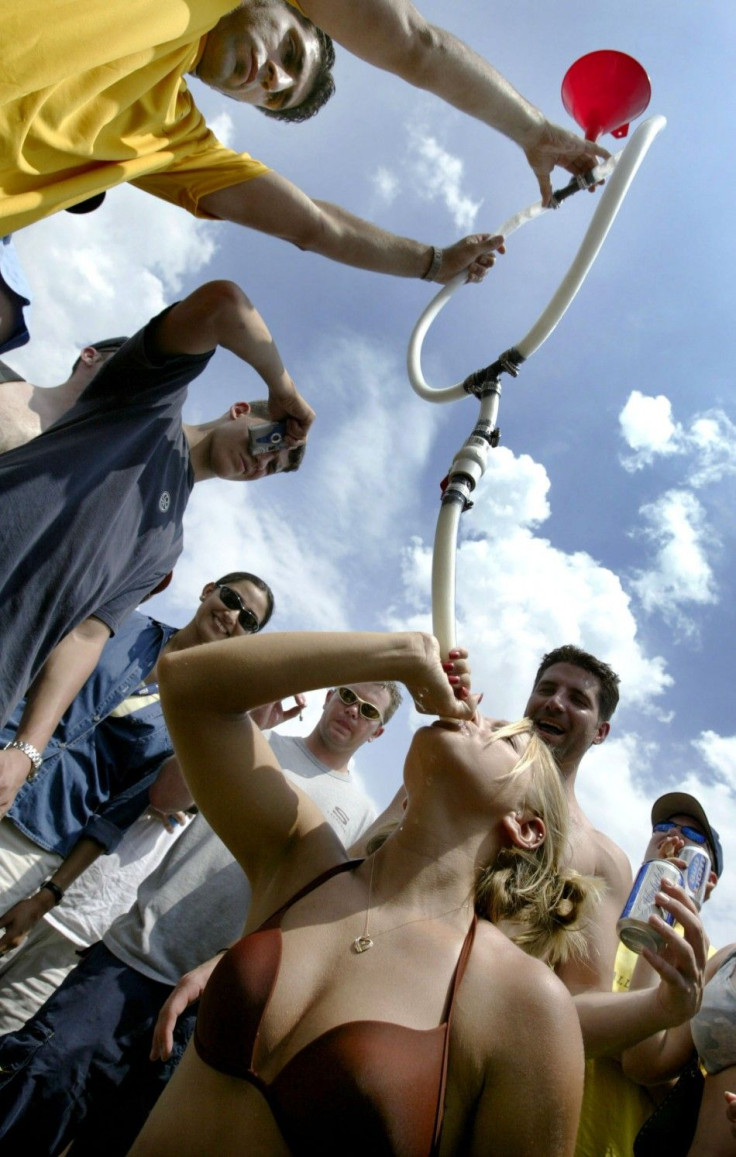Some Teens Might Be Wired For Heavy Drinking

Some teenagers may drink heavily to combat social anxiety or to cope with unhappiness and stress. Others may also find the siren call of alcohol especially enticing because their brains are wired in such a way that they get a bigger than normal kick out of getting drunk or in anticipating a drink.
In a study published on Monday in the Proceedings of the National Academy of Sciences, an international group of researchers took one of the closest looks yet at the molecular mechanisms at play in people at a higher risk for alcoholism, thanks to a particular gene variant called RASGRF-2.
"People seek out situations which fulfill their sense of reward and make them happy, so if your brain is wired to find alcohol rewarding, you will seek it out,” senior author and King's College London researcher Gunter Schumann said in a statement Monday.
In their initial experiments, the researchers looked at mice that lacked the RASGRF-2 gene variant. Compared to their littermates with the gene, the rodents without RASGRF-2 were much less likely to drink from a water bottle containing some alcohol when they had the option to pick between the spiked concoction and a bottle with plain water.
A closer look at mouse brains revealed that the lack of RASGRF-2 impairs the dopamine-releasing ability of certain neurons in the ventral tegmental area of the brain, or VTA. This brain region is thought to play a big role in a person's natural feelings of reward and has been implicated in everything from intense emotions to mental illnesses to drug addiction.
Without RASGRF-2, the reward pathway is compromised, and alcohol -- or the anticipation of drinking -- will deliver less of a kick.
To apply their knowledge to human subjects, the scientists looked at brain scans of more than 660 14-year-old boys that were asked to perform various cognitive tasks. When they were anticipating a reward, the boys with variations in the RASGRF-2 gene had higher activity in the ventral striatum brain area, linked closely to the VTA and itself involved in dopamine release.
Then the researchers turned to analyze data from the same cohort of boys taken two years later, after many in the group had started to drink. The boys with that variation at the RASGRF-2 gene linked to higher activity in those reward areas drank more frequently than others in the group without the gene variant.
“We now understand the chain of action: how our genes shape this function in our brains and how that, in turn, leads to human behavior. We found that the RASGRF-2 gene plays a crucial role in controlling how alcohol stimulates the brain to release dopamine and hence trigger the feeling of reward. So, if people have a genetic variation of the RASGRF-2 gene, alcohol gives them a stronger sense of reward, making them more likely to be heavy drinkers."
There are some limits to the study and more work to be done -- the scientists still don't have a precise picture of the molecular mechanisms engendered by the RASGRF-2 variant that lead to more pronounced drinking.
Nevertheless, "identifying risk factors for early alcohol abuse is important in designing prevention and treatment interventions for alcohol addiction," Schumann said.
SOURCE: Stacey et al. “RASGRF2 regulates alcohol-induced reinforcement by influencing mesolimbic dopamine neuron activity.” PNAS published online ahead of print.
© Copyright IBTimes 2025. All rights reserved.





















